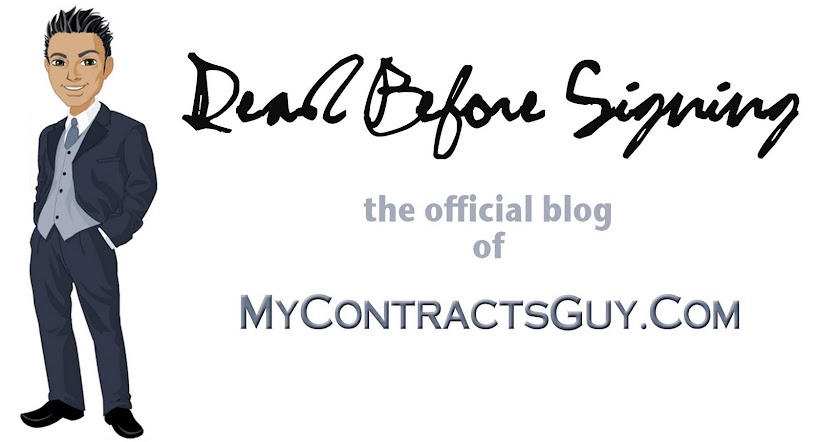 One of the oldest and fairest sounding ideas in entrepreneurship is actually one of the most troublesome concepts in all of business law: the 50/50 partnership. It's a concept grounded in a fundamental lesson that most of us learned in kindergarten - sharing. When we get into a joint venture of any sort with another person, the simplest thing with regard to ownership is an even split. It's difficult to disagree with this distribution, and amidst the intoxicating haze of a blossoming business or even business idea, there seems to be little downside. Unfortunately, the business law landscape is littered with examples of just how poor of an idea this actually is in practice, especially when things start to go bad.
One of the oldest and fairest sounding ideas in entrepreneurship is actually one of the most troublesome concepts in all of business law: the 50/50 partnership. It's a concept grounded in a fundamental lesson that most of us learned in kindergarten - sharing. When we get into a joint venture of any sort with another person, the simplest thing with regard to ownership is an even split. It's difficult to disagree with this distribution, and amidst the intoxicating haze of a blossoming business or even business idea, there seems to be little downside. Unfortunately, the business law landscape is littered with examples of just how poor of an idea this actually is in practice, especially when things start to go bad.No Majority
The biggest problem with 50/50 partnerships is the most obvious one. There is no majority. There is only unanimity. Which is particularly difficult to obtain once there is any problem between partners. Because there's only two of you. So, neither of you can get anything outside the normal course of business done without the other. The moment you two stop seeing eye to eye, the company is paralyzed. So, when one of you is ready to go get some additional investors to move the company to the next level and the other isn't, you're not going anywhere. When you have an offer to sell the company and one of you doesn't want to sell, you're not selling to anyone. When you've got an internal dispute to resolve, there's no one else to mediate it, so you're got to pay a professional arbitrator/mediator. And if you do end up in court, the court will recognize the organization is at impasse and order a liquidation of the assets for the benefit of the stakeholders. Wow, right? In short, it's a bad scene.
Ownership
Another problem with the 50/50 partnership the lack of direction it gives on ownership in the case of a dissolution. Think of it like a marriage, because that's exactly what it becomes once you're in a even partners situation. All of the assets of the company, especially any intellectual property are not clearly owned by anyone, and ownership of the great idea you had when you started thing is now the subject of a messy contest. So maybe you can make a lot more with that idea than you partner, and it was mostly your idea to start with. It doesn't matter now, because now it's half his/hers and he/she likely knows how badly you'd like to own it.
The Myth of Equality
The reality of most partnership situations is that there really is a partner who is likely entitled to a controlling stake (i.e. 51% ownership). It could be the partner who put in most of the money or the partner who is bringing in the vital IP, or the partner who has the most business experience and is really more qualified to make the tough decisions, etc. In practice, the difference between 49/51 and 50/50 has a lot less to do with the money coming out than it has to do with control. And while this may be a difficult subject to tackle in the beginning, that may be the best time to leverage all the good energy and emotion to get this vital decision out of the way.
In the end, the 50/50 partnership ends up being neither fair nor equitable with the partners being able to hold one another hostage, and leaving the courts with only the Solomon's alternative to dispute resolution. In situation with more than two partners, equitable distributions can work, but when there's only two of you, it's best to work with an attorney to find out which one of you is going to have control - to avoid neither of you having it.










1 comments:
Yes, yes, yes. You speak the truth. It is especially enticing when forming a partnership with a friend to want to go halvsies (and do you want to be in such a close business relationship with someone you don't consider a friend? If not, you REALLY need good luck!), but in the end, it becomes a marriage without the base of love which gets people through the hard times. Power struggles will quickly evaporate even the greatest reserves of goodwill and become divorce proceedings you pray never to witness. Take it from someone who's been there - if you are considering this arrangement, read and then reread the wisely worded article above. Consider getting a third partner or somehow alternately dividing your control. Might save you a lot of time and aggravation~
Post a Comment